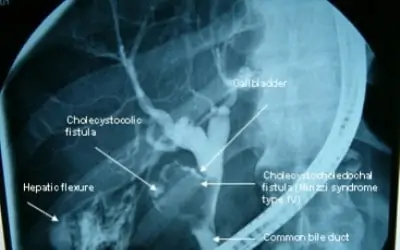
ERCP, which stands for Endoscopic Retrograde Cholangiopancreatography, is a procedure utilized by Gastroenterologists to diagnose problems in the liver, gallbladder, bile ducts and pancreas. It combines the use of x-rays and an endoscope. The physician uses the endoscope to inject dyes into the biliary tree and ducts and the pancreas so they can be viewed on x-ray.
In preparation for the procedure, the physician will instruct you not to eat or drink anything after midnight on the night before the procedure. The physician will also take a history from you, specifically asking if you have an allergy to iodine (or shellfish). The contrast dye contains iodine, so it is important to determine if you have an allergy to iodine before beginning the procedure.
On the day of the procedure an IV tube will be placed into your arm. This will allow for the administration of sedatives to make you relaxed and sleepy during the procedure and will also allow for administration of fluids to keep you hydrated.
The procedure begins with you being placed on your left side on an examining table in an x-ray room. The nurse will place a plastic guard in your mouth to protect your teeth. She will then administer a sprayed numbing agent to the back of the throat. Monitoring devices will be placed on your skin to monitor your blood pressure and blood oxygen.
You will then swallow the endoscope, which the GI physician will guide through your esophagus and stomach and duodenum. Once the physician maneuvers the endoscope to the spot where the biliary ducts and pancreas open into the duodenum, you will be turned to lie flat on your stomach. The physician will then inject a dye into the ducts which will allow them to be seen clearly on x-rays.
If the ducts show obstruction, the physician may then use the endoscope and insert tools to remove or relieve the obstruction. The physician may also take a biopsy of the tissue for review under a microscope.
ERCP generally lasts between 30 minutes and 2 hours depending on the physician’s assessment of his findings. After the procedure, you will be sleepy for a few hours and will not be able to drive yourself home. You will also not be able to eat or drink anything for a couple of hours. You will feel slightly bloated because of the air induced from the endoscope. You should rest quietly until the next day and have very light meals with plenty of fluids.
Possible complications of ERCP include inflammation of the pancreas, infection, bleeding and perforation (puncturing) of the duodenum. If perforation occurs, you may need to undergo surgery to repair the perforation. It is important that the physician timely recognize and treat a perforation. Failure to do so may lead to infection, sepsis and even death. Notify your physician immediately if your pain becomes severe or if you either vomit blood or pass blood in your stool. A fever above 101 degrees may indicate the presence of an infection.
